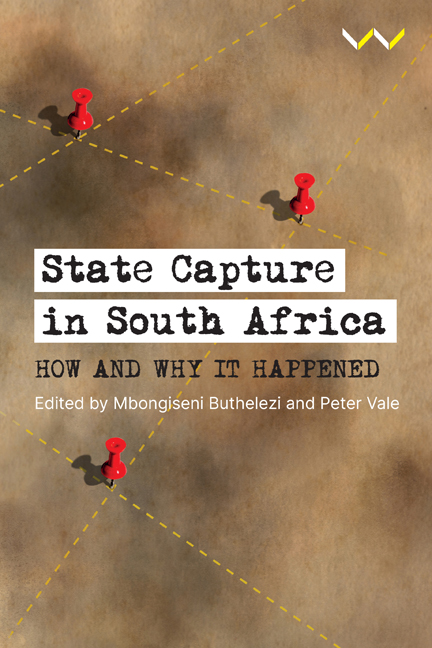Chapter 7 - Media Capture, the Mirror of State Capture
Published online by Cambridge University Press: 28 February 2024
Summary
In the run-up to the 17 December 2017 election of a new president of the African National Congress (ANC), and therefore president of the country, old-fashioned campaigning was intense. But it was augmented – surpassed even – by a new form of campaigning, at the centre of which was social media. Like all transitions, this was a messy affair displaying that full diversity of ‘morbid symptoms’ that characterised the interregnum between the ‘old’ and the ‘new’ periods, famously identified by Antonio Gramsci in his Prison Notebooks (Gramsci 1985, 556). This chapter discusses the symptoms – morbid and other – that emerged in South Africa's press in the state capture years.
In the election itself, the status quo had pinned its hopes on a continuation of (what might be called) a ‘Zuma dynasty’. Their candidate was Nkosazana Dlamini- Zuma, a formidable politician with a history of government service; she was also a one-time wife of the outgoing president, Jacob Zuma. Up against Dlamini-Zuma was Cyril Ramaphosa, presented as the great hope of rescuing South Africa from the influence of Zuma, the man dubbed ‘a kleptocrat with no interest in the future’ by Jonny Steinberg (2020). That Ramaphosa would prevail against those described derisively as the ‘Zuptas’, the portmanteau word invented to portray the coalescence of the interests of the president and the Gupta family, was by no means assured. Ramaphosa indeed won the votes of delegates to the ANC elective conference, albeit by a slim margin.
The Zupta social media campaign was not an isolated phenomenon but part of an ambitious project of media capture, which is often seen as complementary to any strain of state capture (Dragomir 2019). Transparency International defines ‘state capture’ as a form of pervasive corruption that enables private sector actors to ‘use corruption to shape a nation's policies, legal environment, and economy to benefit their own private interests’ (Martini 2014, 2). In one definition, media capture means the news media become so beholden to vested interests that they lack autonomy (Schiffrin 2017). But this position is contested. So, what degree of autonomy suffices for the media not to be captured?
- Type
- Chapter
- Information
- State Capture in South AfricaHow and Why It Happened, pp. 151 - 172Publisher: Wits University PressPrint publication year: 2023



